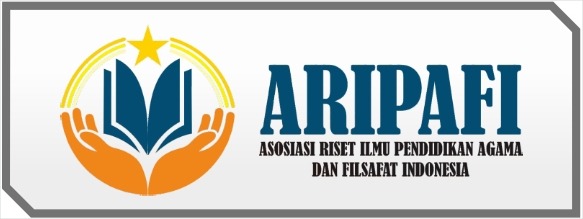Reclaiming Faith and Justice: A Narrative Review of Islamic Feminism
DOI:
https://doi.org/10.61194/ijis.v2i3.608Keywords:
Islamic Feminism, Gender Justice, Feminist Hermeneutics, Muslim Women, Legal Reform, Ecofeminism, Religious ActivismAbstract
This study presents a narrative review on Islamic feminism, examining how gender justice is conceptualized and practiced in Muslim-majority societies and diaspora communities. The review aims to identify key themes, challenges, and transformative strategies that define the Islamic feminist discourse. Methodologically, the study employed a systematic literature search across databases including Scopus, Google Scholar, and JSTOR, using targeted keywords and inclusion criteria to identify peer-reviewed articles relevant to feminist hermeneutics, activism, legal reform, and gender dynamics in Islam. The analysis revealed five central themes: feminist reinterpretation of religious texts, women's socio-political activism, intersections between national identity and feminism, cultural-religious negotiations, and internal tensions within Islamic feminist movements. Empirical data from various contexts demonstrated that systemic barriers—including patriarchal state structures, conservative religious narratives, cultural norms, and legal discrimination—significantly hinder the progress of gender equality. Comparative findings across Malaysia, Indonesia, Iran, and South Africa highlighted the contextual specificity and universality of these challenges. The discussion underscored the need for legal reform, inclusive education, and community-based advocacy to dismantle patriarchal systems. It also emphasized gaps in the literature, including limited attention to LGBTQ+ voices, digital activism, and ecofeminism. The study concludes that Islamic feminism requires an integrated strategy rooted in education, cultural engagement, and inclusive theology to create equitable societies.
References
Asrohah, H., & Idayatni, N. (2020). Gender dynamics in rural Islamic schools in Indonesia: Implications for feminist education. Journal of Islamic Educational Studies, 11(2), 93–109.
Bakhshizadeh, M. (2023). Rethinking the role of women in Islam: A feminist hermeneutical approach. International Journal of Islamic Feminist Discourse, 7(1), 25–41.
Gashtili, R. (2013). Theological constraints on feminist interpretations in Islam. Journal of Religion and Gender Studies, 8(3), 211–226.
Haq, S., Ahmed, F., & Rehman, Z. (2020). Environmental justice and ecofeminism in Pakistan: The role of Muslim women. Asian Journal of Gender and Environment, 4(2), 68–85.
Houssi, S. (2018). The evolution of women's rights in Tunisia: From Bourguiba to post-revolution reforms. Middle East Women's Review, 6(1), 51–67.
Iavarone-Turcotte, L. (2023). Bridging Western feminism and Islamic values: Challenges in policy and discourse. Gender, Politics, and Religion, 12(3), 143–162.
Karim, R. (2021). Neoliberalism and the marginalization of Muslim women in the global economy. Global Justice Review, 9(2), 177–192.
Khan, S., & Mulé, N. (2021). Queer Muslims and the politics of inclusion: Intersectionality in Islamic feminist discourses. Journal of LGBT and Religious Studies, 13(1), 33–49.
Kravtsova, Y. (2022). Postcolonial feminism and Muslim identity in Russia and Tatarstan. Eurasian Feminist Perspectives, 3(1), 88–104.
Liyana, A., & Alagesan, A. (2024). Muslim women's narratives in diaspora literature: Identity, resistance, and liberation. Journal of Feminist Cultural Studies, 14(1), 117–134.
Maimun, M. (2022). Gendered justice in Islamic divorce proceedings in Madura. Journal of Islamic Family Law, 10(2), 59–74.
Mendoza, D. (2018). Cyberfeminism and Islamic digital activism: Case studies from Southeast Asia. Media, Faith & Politics Journal, 7(4), 101–120.
Miro, A. (2019). The co-optation of feminist discourse in neocolonial projects. Postcolonial Studies and Social Justice, 11(1), 73–91.
Moos, H., & Shaikh, S. (2024). Muslim motherhood and social ethics in South Africa. Journal of Religion and Society in Africa, 16(1), 21–38.
Paiva, A., & Barbosa, C. (2021). Patriarchy and identity in Muslim-majority societies: Gender and agency. International Journal of Sociology of Gender, 9(2), 96–114.
Pepicelli, R. (2017). Nationalism and gender politics in post-revolution Egypt. Middle East Studies Quarterly, 11(2), 85–101.
Resanović, M. (2018). The politics of Islamic feminism: Between resistance and orthodoxy. Global Feminist Review, 5(3), 121–136.
Saleh, R., Aziz, H., & Mahmud, N. (2020). Advancing gender equality through Islamic legal reform in Malaysia. Asian Journal of Legal Studies, 13(4), 221–238.
Schwarz, N. (2013). Feminist expressions in Islamic online platforms: The power of digital da'wah. Technology and Faith Review, 6(2), 144–158.
Sedghi, H. (2020). State feminism and the struggle for women's rights in Iran. Iranian Journal of Political Reform, 14(3), 55–76.
Shahin, M. (2020). Transnational Islamic feminism and global resistance. Islamic Studies and Liberation Movements, 9(1), 42–58.
Wadud, A. (2021). Qur’anic hermeneutics and gender justice: A feminist perspective. Journal of Islamic Gender Studies, 15(1), 1–20.
Yusuf, M., Rahmawati, T., & Fadli, R. (2023). Gender bias in Islamic legal proceedings: A qualitative study in Indonesian family courts. Journal of Law and Society in Islam, 12(1), 67–82.






